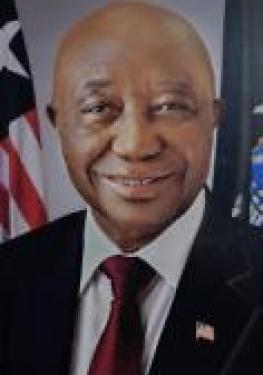The Agency shall be the principal authority in Liberia for the management of the environment and shall co-ordinate, monitor, supervise and consult with relevant stakeholders on all activities in the protection of the environment and sustainable use of natural resources.
Functions
The agency functions include but not limited to the following;
- Co-ordinate, integrate, harmonize and monitor the implementation of environmental policy and decisions of the Policy Council by the Line Ministries; ensure the integration of environmental concerns in overall national planning;
- Collect, analyze and prepare basic scientific data and other information pertaining to pollution, degradation and on environmental quality, resource use and other environmental protection and conservation matters and undertake research and prepare and disseminate every two years a report on the state of the environment in Liberia;
- Build the capacity of line Ministries, authorities and organizations through the exchange of data and information, and to render advice, technical support and training in environment and national resource management so as to enable them to carry out their responsibilities effectively; ensure the preservation and promotion of important historic, cultural and spiritual values of natural resources heritage and, in consultation with indigenous authority, enhance indigenous methods for effective natural resource management;
- Promote public awareness through public participation in decision making and formal and non-formal education about the protection and sustainable management of the environment, and to allow at minimal or no costs, access o environmental information and records made in connection with this Act; integrate scientific mechanisms and technical requirements in environmental management in order to develop indicators for environmental changes and progress of environ mental sustainability in accordance with this Act; the use of appropriate environmentally sound technologies and renewable sources of energy and natural resources;
- Establish environmental criteria, guidelines, specifications and standards for production processes and the sustainable use of natural resources for the health and welfare of the present generation, and in order to prevent environmental degradation for the welfare of the future generations;
- Identify projects, activities, policies, and programs for which environmental impact assessment must be conducted under this Act;
- Initiate and co-ordinate actions required in a state of environmental emergency or any other situation which may pose serious threat to the environment and public health;
- Monitor an assess projects and activities including activities being carried out by relevant ministries and bodies to ensure that the environment is not degraded by such activities and that environmental management objectives are adhered to and adequate early monitoring on impending environmental emergencies is given;
- Review sectoral environmental laws and regulations and recommend for amendments and to initiate proposals for the enactment of environmental legislation in accordance with this Act or any other Act;
- Function as the national clearinghouse for all activities relating to regional and international environment-related conventions, treaties and agreements, and as national liaison with the secretariat for all such regional and international instruments;
- Improve efficiency of financial processes under multilateral agreements by prioritizing and harmonizing host and donor priorities in programmes, project preparation and design; advise the State and participate in the process of negotiating, ratifying or acceding to relevant regional and international environmental agreements;



